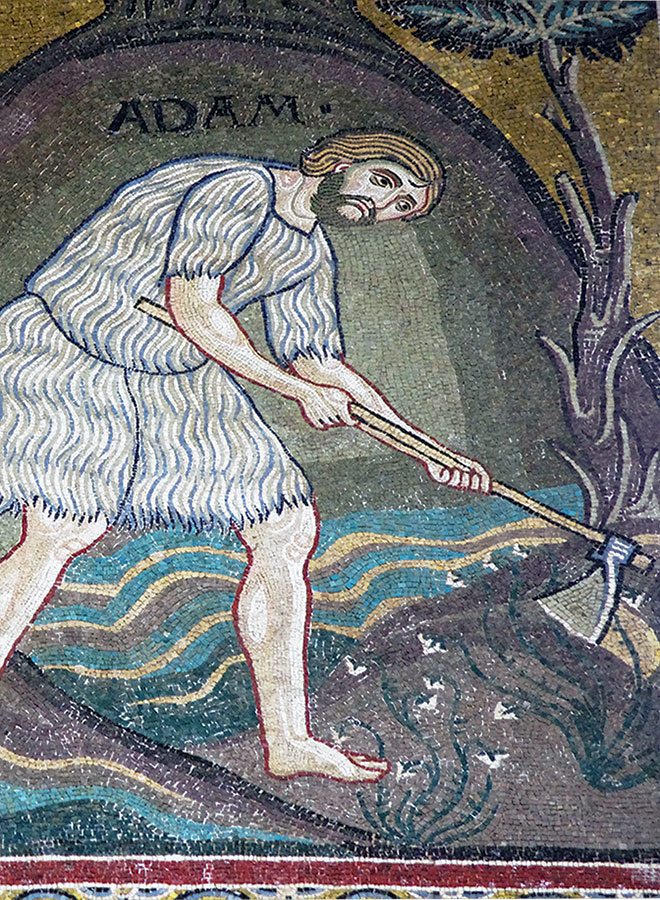Brokenness Affects Our Work, Part 2
And to the man he said, ‘Because you have listened to the voice of your wife, and have eaten of the tree about which I commanded you, “You shall not eat of it,” cursed is the ground because of you; in toil you shall eat of it all the days of your life; thorns and thistles it shall bring forth for you; and you shall eat the plants of the field. By the sweat of your face you shall eat bread until you return to the ground, for out of it you were taken; you are dust, and to dust you shall return.’”
Genesis 3:17-19
In the Life for Leaders’ post Brokenness Affects Our Work, Part 1 , we saw one example of brokenness affecting our work. The woman will continue to “bring forth children,” an essential element of her work, yet she will do so “in pain” (Gen 3:16). Today, we see a second way in which human work is made much more difficult as a result of sin.
Because the man ate the forbidden fruit, God cursed the ground for which the man was created as its tiller and keeper (3:17; notice, by the way, God did not curse the man or the woman, only the serpent and the ground.) Therefore, the man would get food from the ground only “in toil.” The Hebrew word translated as “toil” means work filled with hardship, pain, or distress. Part of this toil would involve battling “thorns and thistles” that spring up from the earth (3:18). These weeds would steal nutrients from nutritious plants and cause pain when the man attempted to weed the garden.
Moreover, the man would “eat bread” that comes from the produce of the ground only “[b]y the sweat of your face” (3:19). This is a poetic way of signifying hard, difficult work. Our passage does not imply that, prior to sin, work would require no effort at all. Tilling, keeping, and related activities would entail plenty of human effort. But that effort would be the kind of good work that leaves us feeling both tired and fulfilled. Because of sin, however, the tiredness quotient goes way up and the fulfilled quotient goes way down.
Genesis 3:17-19 is the source of a mistaken belief that all human work is punishment for sin and the result of the Fall. This perspective is often attributed to Christians or even held by them. Of course, given what we have learned about work in Genesis 1-2, we can safely reject the “work as a curse” point of view. God intended for us to work from the very beginning. Sin does not change God’s intention, though it does alter our experience of work. At times we experience work along the lines of God’s plan. But, all too often, our work is marked by frustration and fruitlessness, as we toil painfully, feel our hands torn by “thorns and thistles,” and sweat in work that fails to satisfy our souls.
Looking far ahead in the story of God, we see that one day God will act through Christ to deal with sin and its brokenness. When we receive God’s grace through faith, we will be recreated afresh, given good works in which to walk (see Eph 2:8-10). Among these good works is good work (Eph 4:28), work in which we experience, however partially, what God had intended from the beginning.
QUESTIONS TO CONSIDER:
When you think of work that is painful, frustrating, and unfruitful, what comes to mind? When have you experienced this sort of work?
How has Christ made a difference in your work life?
How might your work be changed if you were to invite Christ into everything you do?
PRAYER:
Gracious God, thank you for the gift of work. There are times when we experience work along the lines of your intentions, when work is fulfilling and fruitful. For these moments we thank you.
Yet, we all know the other side of work, the side corrupted by sin. We know how work can be frustrating and empty, even debilitating and dehumanizing. Though we may not feel the literal sting of thorns and thistles, our work has been stained by sin.
We thank you for redeeming us through Christ, and for beginning to redeem all things, including our work. As we give ourselves to you more fully, may we experience work as you intended, devoting our strengths to that which honors you and makes a real difference in the world. Amen.
Photo credit: The Toil of Adam and Eve by SNappa2006 – Own work. Licensed under CC BY-SA 2.0. Cropped.

Mark D. Roberts
Senior Fellow
Dr. Mark D. Roberts is a Senior Fellow for Fuller’s Max De Pree Center for Leadership, where he focuses on the spiritual development and thriving of leaders. He is the principal writer of the daily devotional, Life for Leaders, and t...



